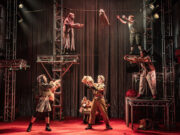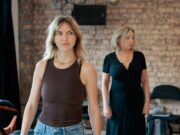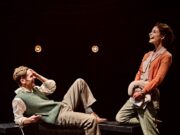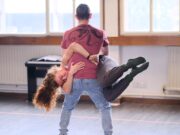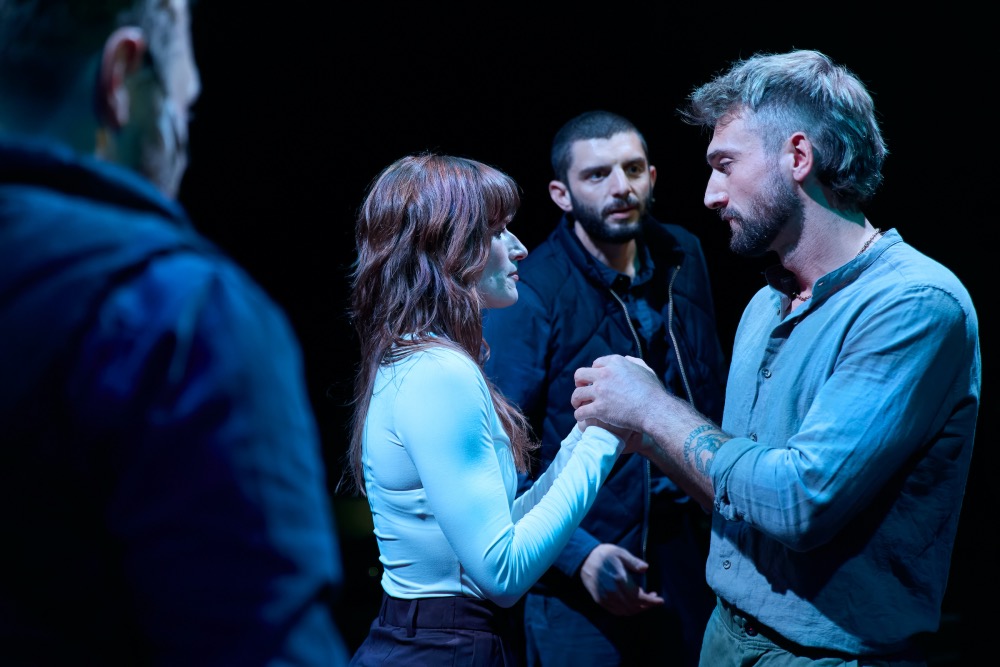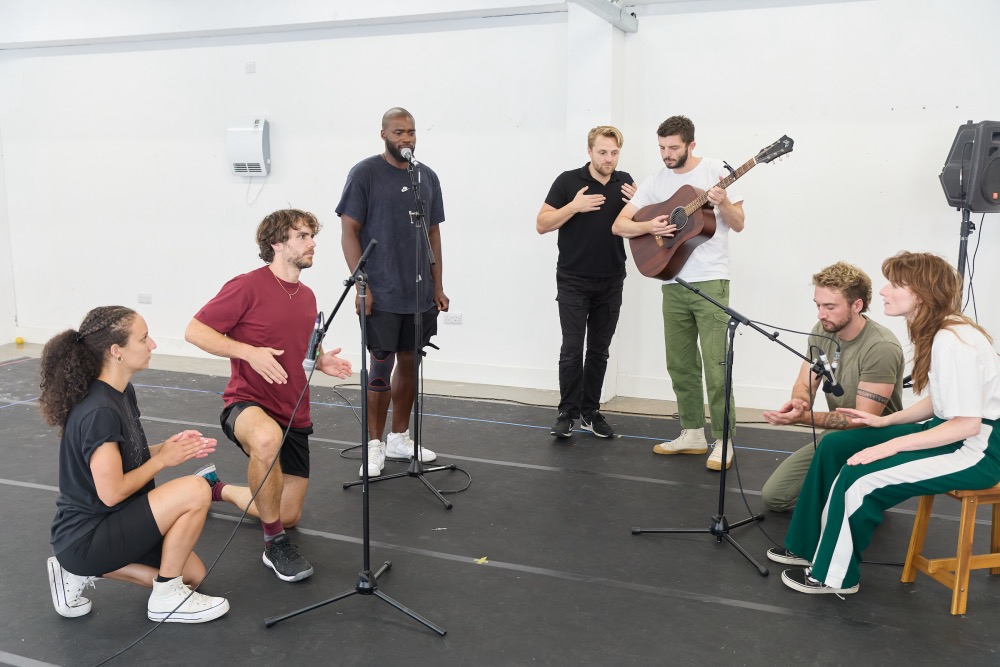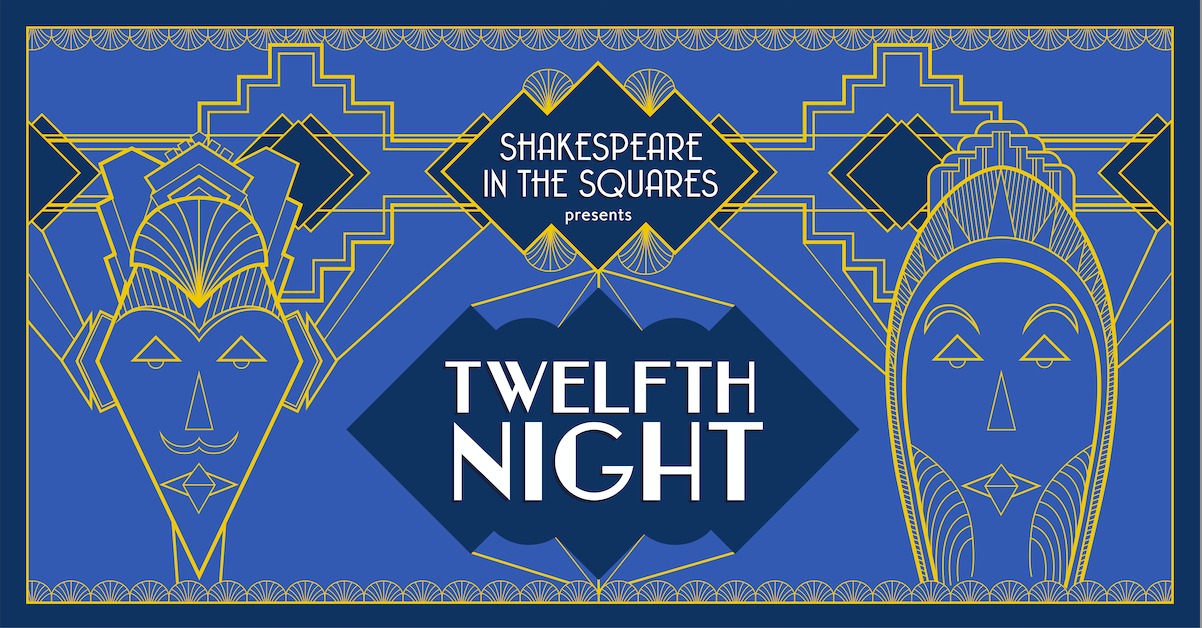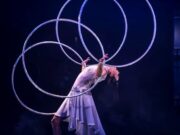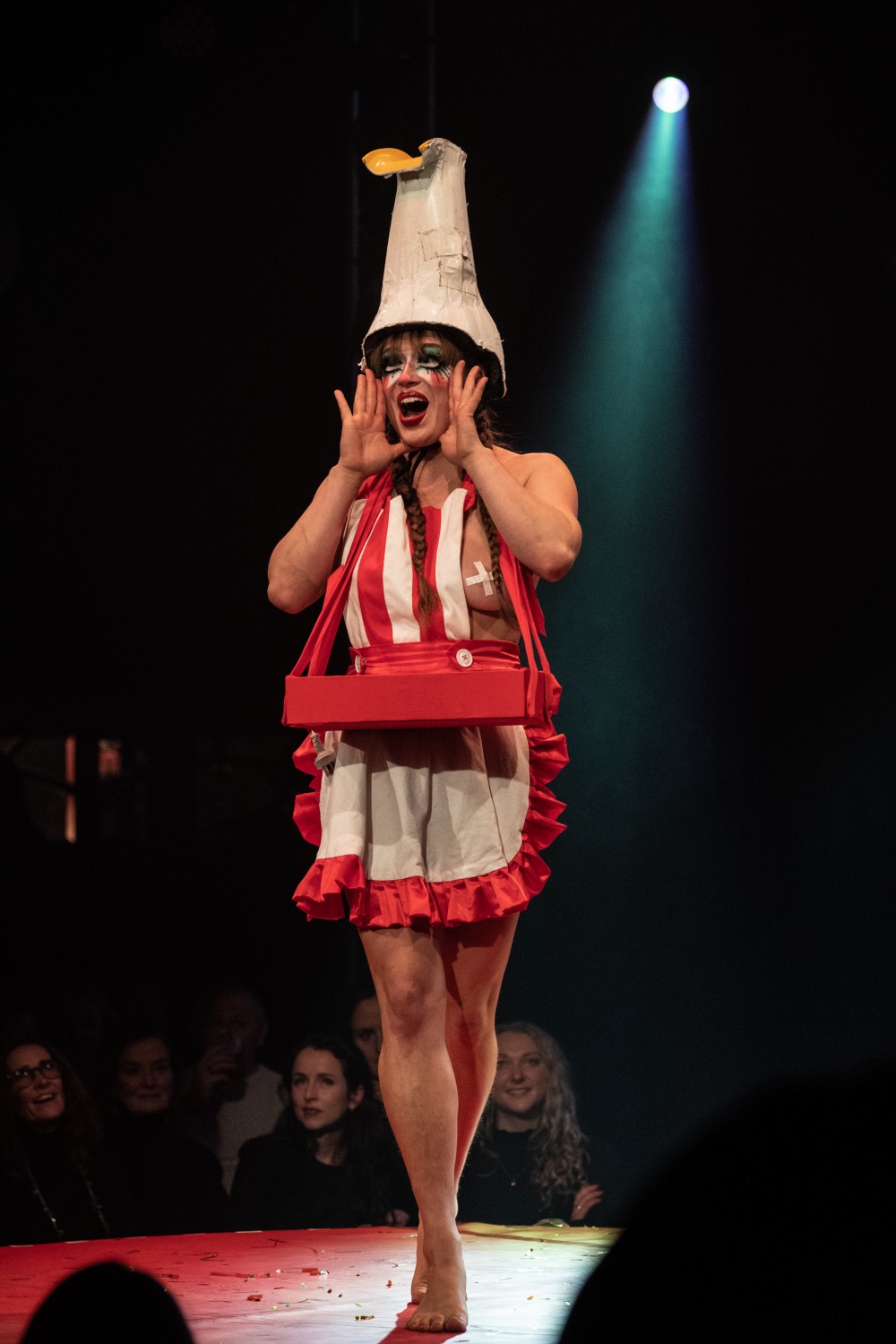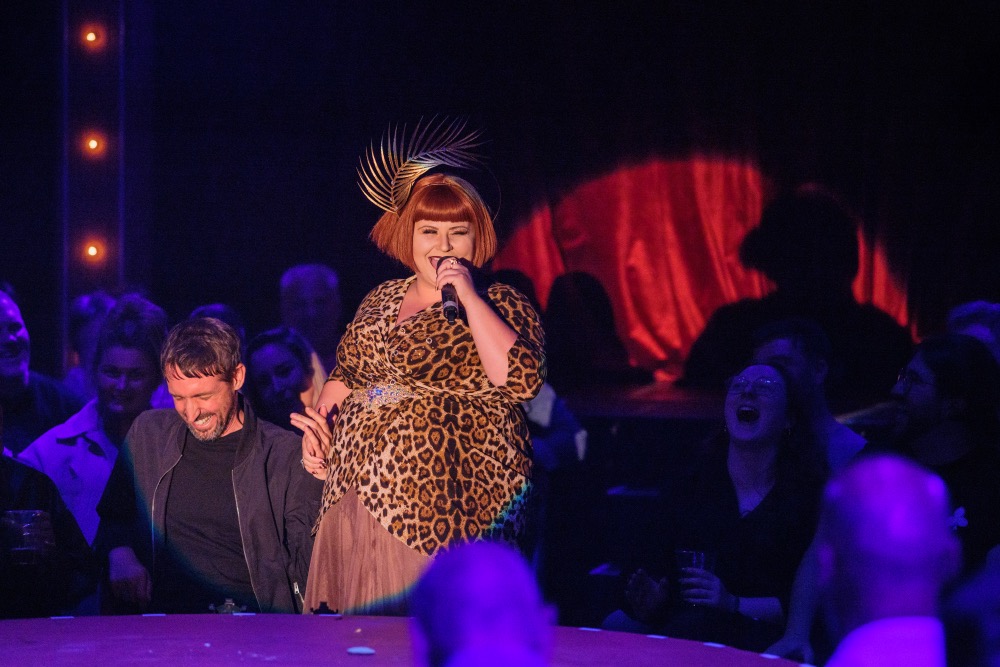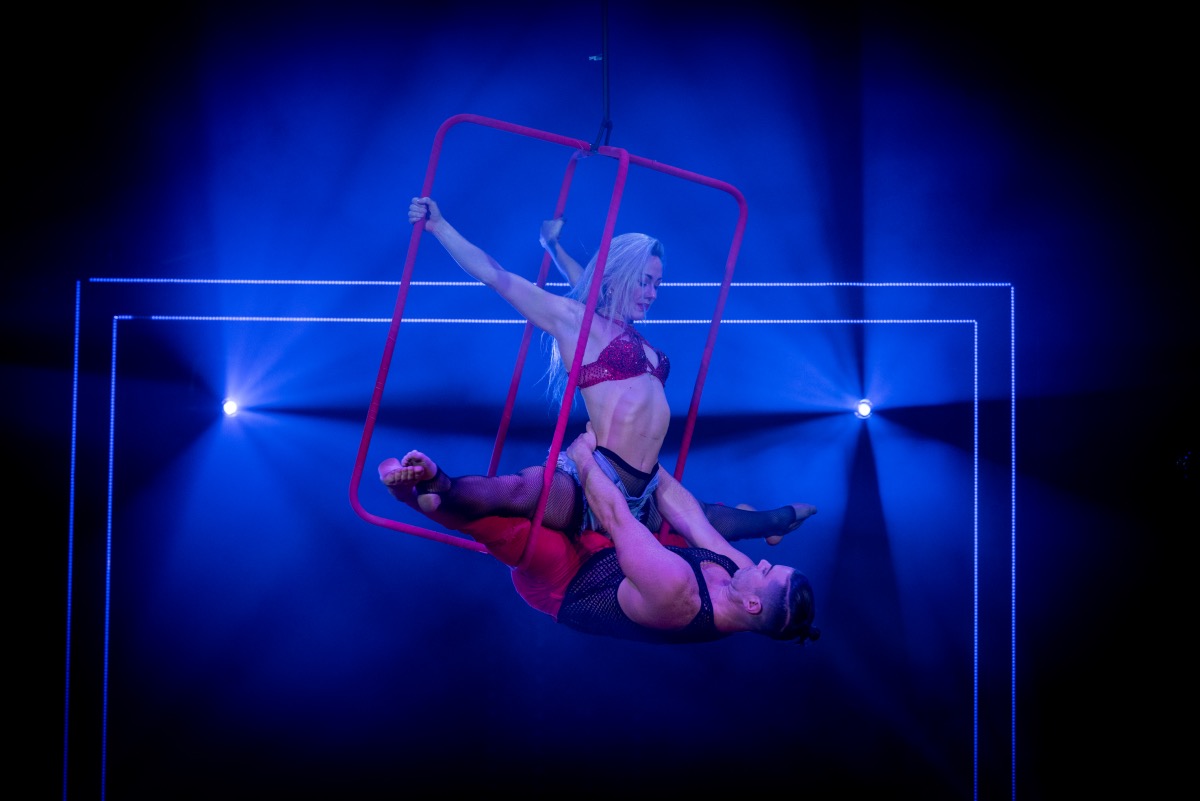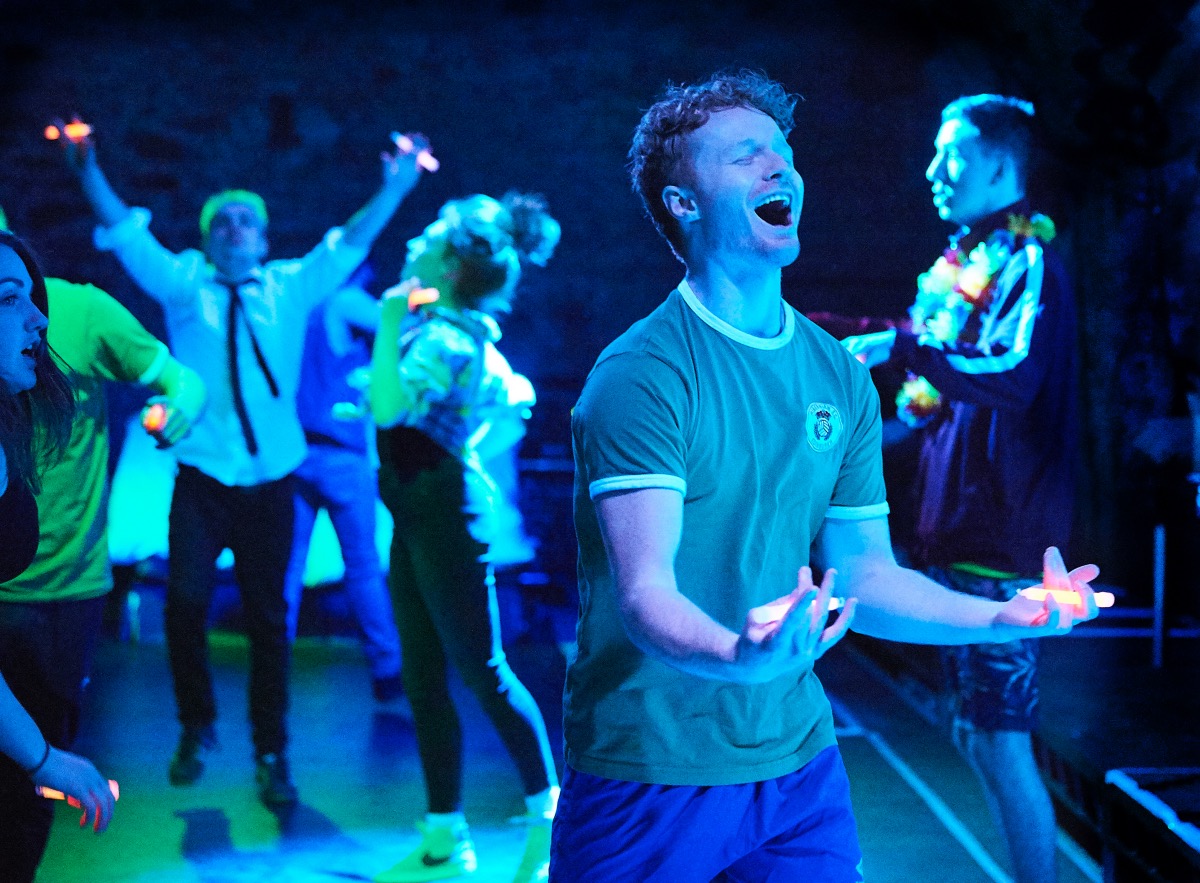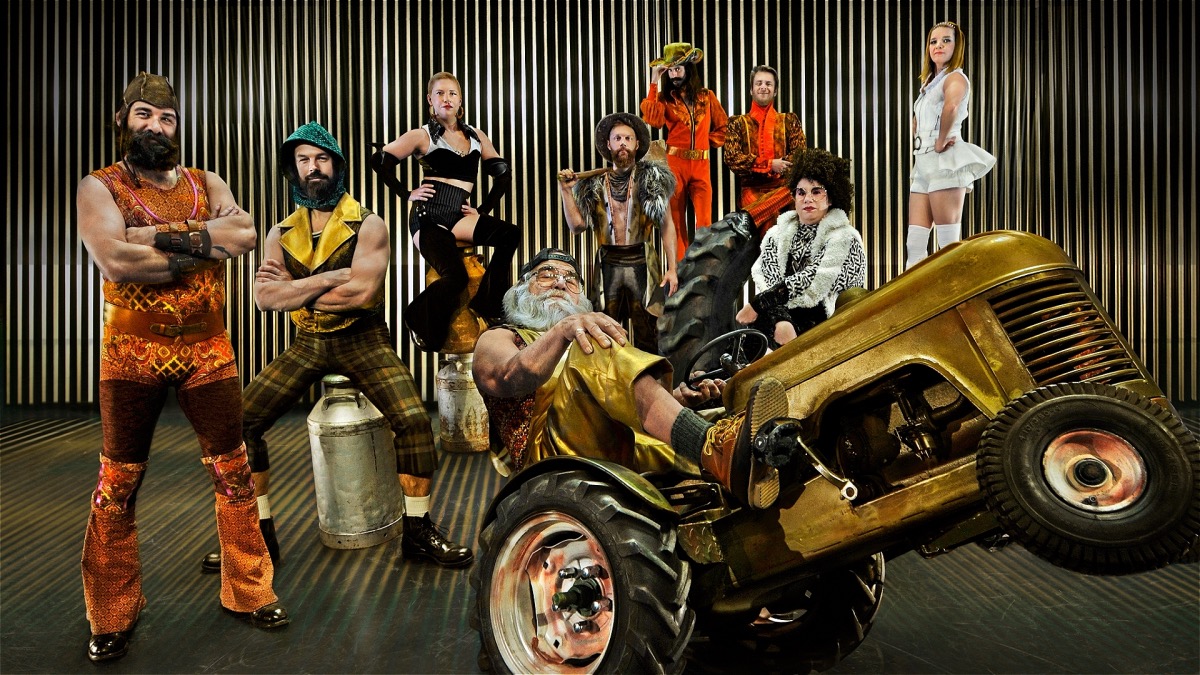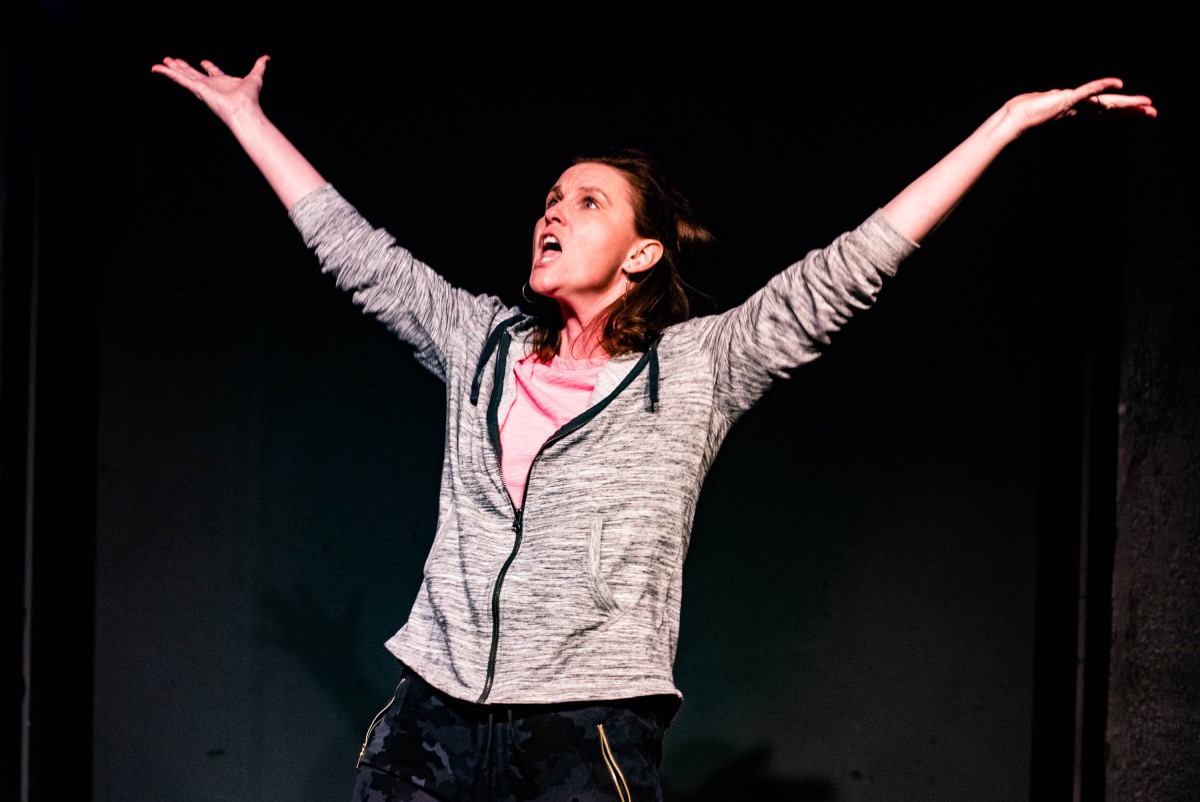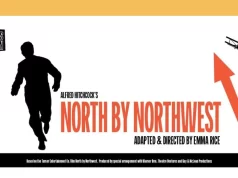Adapted by Harry Gibson, Transpotting Live is based on the book Trainspotting by Irvine Welsh. It tells the story of Mark Renton and his friends, living through the Edinburgh heroin scene of the 80s.
This punchy, immersive production recaptures the passion and controversy of the famous novel and globally successful film, to create a compelling and unforgettable live experience – including the notorious “Worst Toilet in Scotland” scene.
The Artiscape spoke to Scottish actor Andrew Barrett who plays Mark Renton about how he landed this big role in a New York theatre, playing the iconic character. It was while living in New York that he was offered the role.
Barrett moved to New York in September of 2016 with his then partner, now ex-wife, an actor from Tennessee, who he met while studying at the Royal Conservatoire of Scotland. He secured a work permit, and immediately started getting cast in Shakespeare and classical theatre. He tells us “I think because of the American perception of British theatre training benefitting me as a Scot”.
New York was by no means Barrett’s first experience working abroad. Before he embarked on his career in US he had the opportunity to work in Erbil & Sulamaniyah in Kurdistan (Northern Iraq) in 2013, just before ISIS flourished there. “I performed circus, magic and music shows in refugee camps across Europe with the Flying seagull project, for the thousands of unaccompanied children held there in 2016. I also got to do Shakespeare in the south of France and Taiwan. I absolutely love seeing the world, and imprinting on communities there with my art as a performer” he tells us. New York was his next “big adventure.”
Barrett had heard of Trainspotting live since it started in 2013, and really wanted to work on it. “For a brief minute in 2015 the part of Sick Boy was up for grabs and I got a whiff of an audition, but it got snapped up before I even got in the room.”
After two years of working in New York, he would finally get his chance to audition in the spring of 2018 for Trainspotting Live’s off-broadway run. This time he had a gut instinct this was his role walking into the audition.
“Apart from the fact I hadn’t met any other skinny, Scottish, non-union actors during my time in the states”, says Barrett “I had read every word Irvine had written, I knew how heroin looked on someone, I knew what it smells like, I know what it looks like when someone can’t get it, and I care about telling those stories compassionately.”
It was on the day of that audition, he would meet Olivier Sublet and Lauren Downie, who also were cast in the US run, and would come back with him for the 2019 and now 2022 UK tours of Trainspotting Live.
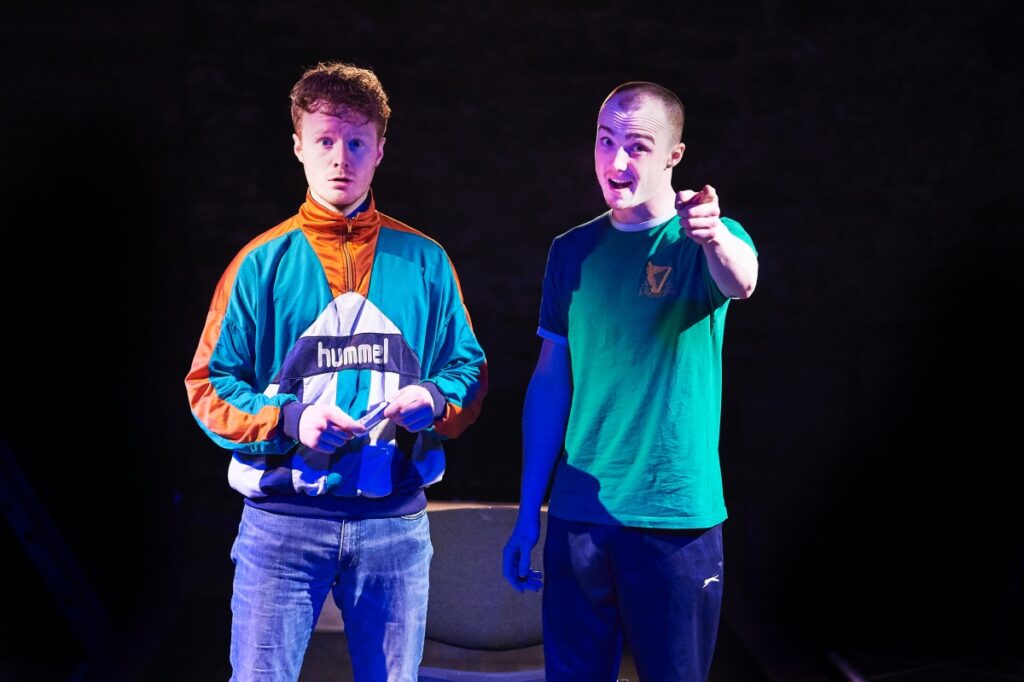
What about the challenges in bringing Renton’s iconic character to the live stage?
Among the challenges Barrett tells us “…[was] in creating a physical structure for the different moments of inebriation and withdrawal, and finding ways to replicate them safely every night, sometimes three times a night.”
He tells us how he looked at “different animals, imitating vultures, New York City rats, scavengers and survivors, using a technique called Identifications” that he trained in at the Lecoq Lees Studios north of Paris in 2014. He tells us “…for the moments of euphoria: I aped candles melting, for the effects of ecstasy, I looked at hummingbirds and hyenas, and drew from a fair bit of extensive research from my early twenties!”
Another challenge he tells us was “balancing the fact that Renton, as someone who regularly takes heroin, would generally have pretty low energy levels, with the fact that he has to narrate a show and hold the attention of upwards of 200 people a night.”
Barrett continues, “He has to be a lithe impresario, but also has to be perpetually carrying a weight, struggling with an inner turmoil, depending on how long it has been since his last hit.
The first half of the play is Renton trying to sell his lifestyle to the audience, it’s him saying ‘Youse are all daft for choosing life, I’ve got something better and it’s cheap and it’s easy and it means you never have to care about any of the sea of troubles that flesh is heir to. Heroin.’ And then the second half of the play is all the risks. Death, disease, abandonment.”
This was the first time Barrett would do nudity on stage. He tells us “I think where it happens in the show is important, as it is early, and full-on, and disgusting. It present a challenge to the audience. This is how much we as actors are committing to this show, now are you with us?”
A few weeks into the New York run an audience member approached Barrett. The person worked at a Harm Reduction Centre in downtown Manhattan, in Chinatown, and asked Barrett if he’d be interested in “coming along one day, meeting the people that use the centre as a safe space to get clean needles, fentanyl strips, and a room to use in.”
Although Barrett had some experience of a family member using heroin, he found that the “reality of that place shocking”, recalling coming close to fainting after the session. “It really hammered home something my family member who uses heroin said once, about heroin being an alien force, that tricks humans into thinking they can handle it, that they are the only one who can handle it, while it ransacks their entire life,” he continues.
He and some of the other cast members were trained in using Narcan, or naloxone.” He tells us “It is drug that blocks a heroin user’s opiate receptors, to be used in the event of an overdose. It save lives.”
What attracted Barrett to the role?
Barrett describes,”Mark Renton [as] kinda like this Scottish Junkie Hamlet”. He tells us “In the opening scene of the movie, He’s running down Princes street because he and Spud have just robbed a jewellers I think, to fuel his heroin habit. In the book, he steals Kierkegaard from Waterstones because he’s interested in his ideas of the objectivity of truth, and the nature of choice.”
He continues, “[Renton] is fiercely intelligent, but under utilised and easily distracted. He is a tragic clown, who we never really truly see thrive or succeed throughout the play, and the audience get to laugh at or commiserate with him as he tries to maintain this ridiculous philosophy that doing heroin all the time is the absolute best way to live.”
Barrett believes it is important “to break down the stigma attached to people who use drugs”. He feels that “some portrayals in art have done more harm than good, showing drug users as troglodytic, Gollum-esque characters.”
“For me as an actor, the role demands everything from me” says Barrett. “All my training, my experience as a clown, as a Shakespearean actor, all my energy and elasticity as a yoga teacher, gets poured into Renton. I’m still scared before every performance, and I’ve done it over 300 times. Every curtain call feels like the top of a munro, or a dismount at the Olympic gymnastics.”
Immersive theatre must be very challenging compared to the more traditional theatre, How has the production evolved through the course of its run so far?
“The show starts with a big rave and most if not all of the text is spoken in direct address to the audience” says Barrett.
One of the strengths of the play Barrett feels is in getting audience members that have never been to a theatre before. “We sit on audience members, we get in amongst them, all these moments are rehearsed and discussed and safe, but it means that audience members often get it wrong, and feel they can interact or interfere with us while we are working.”
Immersive theatre has its challenges. “A few days ago in Glasgow I had to call a show stop and get security to remove an audience member who wouldn’t stop groping and stroking me inappropriately while I was trying to do a scene” he tells us. “In Edinburgh a lady tried to fight me after one of the more multimedia moments of the show caused her to spill her wine on herself.”
On another night at the fringe Barrett says he was reported to the police by an audience member who left because she was not permitted to sit in a “pricier seat”, that she hadn’t purchased.
“In the lake district we had to turf folk out for filming us, body-shaming the cast and heckling” he tells us.
Luckily for Barrett and the other cast members he tells us “we have an amazing team behind the scenes who implement new changes after all of these events, whether it’s increased security stewards by the stage, extra warnings to audience as they arrive to the theatre, trigger warnings posted all over the building or clearer code-words for cast to use on stage to alert front of house to medical emergencies or drug use or violently drunk patrons”.
In the past four years, Barrett tells us the show has evolved. In the US, they needed to anglicise it a lot as the Scottish colloquialisms would go over the heads of an American audience. Barrett was relieved “to inject all those Edinburgh vernacular terms back into the piece when we brought it to the UK.”
What are the difference or similarities to the book and/or the film?
Barrett tells us “We take the book as our source material. We give wee nods to the film in the costume choices, Sick boy has the iconic blonde hair and shirt and tie, Renton has the tight t-shirt and the slouch, Begbie’s slathered in Brillcreem and denim.”
“We start the play with Choose Life speech, like the movie, and we have a couple scenes that are like the Greatest hits of Trainspotting, with wee easter eggs for the eagle eyed fans.”
He tells us; “the structure of the play is a lot more episodic than the film, and in that way is similar to the book. It’s more of a vignette, where the narrative comes out of a more general view of each of the disparate scenes in succession, rather than your classic ABC narrative structure.
I think our version also celebrates the grotesque poetry of Irvine’s writing more than the movie. Her face was like a skull, wrapped in milky cling film. Every bone in my body was being crushed in a vice and set aboot wi a blunt hacksaw. That kinda thing.”
What should an audience expect from this immersive experience?
“Audiences can expect to be terribly over-stimulated” he tells us. “The show is meant to mirror the effects of taking a drug like heroin. The euphoria, the love, the comedy, the hyper-speed energy is all in the first half of the play. As it goes on the cracks start to appear in this Perfect Day image that Renton has curated.”
“Audiences can expect to laugh” Barrett adds. “The cast are all incredible clowns, and although the early comic scenes seem chaotic and silly, there is some absolutely laser-guided slapstick going on throughout.”
He tells us the Audience can also expect to be “challenged”. “We did the show in Windermere a fortnight ago, in the lake district, and the first few shows were predominantly folk of a certain age, from a certain class, who have likely spent a lot of money throughout their lives to never have to be exposed to the people and events that are rife in Trainspotting. We could feel the hostility even from the rave. But they stuck with us.”
“There is an immense amount of humanity in the events of Trainspotting Live” Barrett tells us. “The Renton/Tommy story that we hang the climax of the play on is an ancient one of loyalty and betrayal.”
Audiences he tells us “can expect to be galvanised. The political landscape of the late 80s that Trainspotting is set in has stark similarities to the one we are currently in.”
Barrett wishes this play would have less relevance to what is going on today, and wishes that in the future it could be performed as a historical piece. But in today’s reality “drug deaths are still harrowingly high in Scotland” says Barrett. Quoting Renton he says “It’s a well known fact, that you never stand a fuckin’ chance of getting anything decent in this city, unless you went to a posh school”.
GLASGOW – Platform (via entrance on Midland Street)
27 Sep – 16 Oct – BOOK TICKETS
LONDON – Riverside Studios, Hammersmith
18 Oct – 6 Nov – BOOK TICKETS
SOUTHAMPTON – MAST Mayflower Studios
9 – 12 Nov – BOOK TICKETS



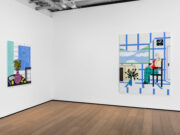
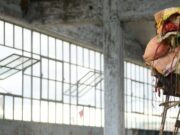
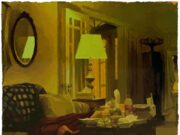

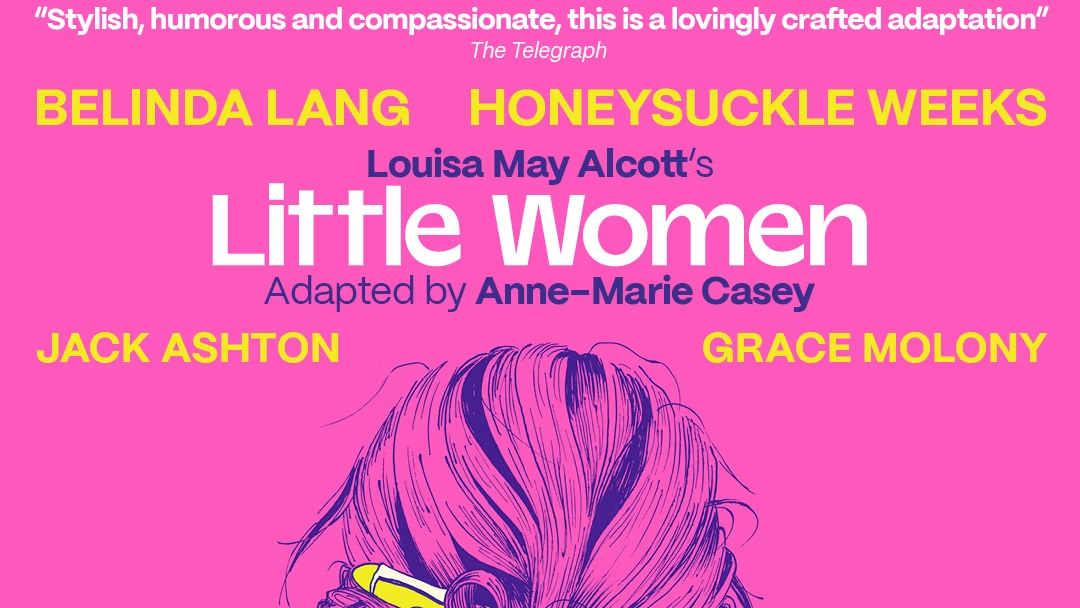
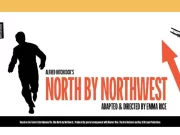
![Antigone [on strike] | Review Ali Hadji-Heshmati and Hiba Medina in Antigone [on strike] at Park Theatre, London. Photo: Nir Segal](https://theartiscapegallery.com/wp-content/uploads/2025/02/Antigone-on-strike-photo-by-Nir-Segal-D1_Standard-180x135.jpg)
